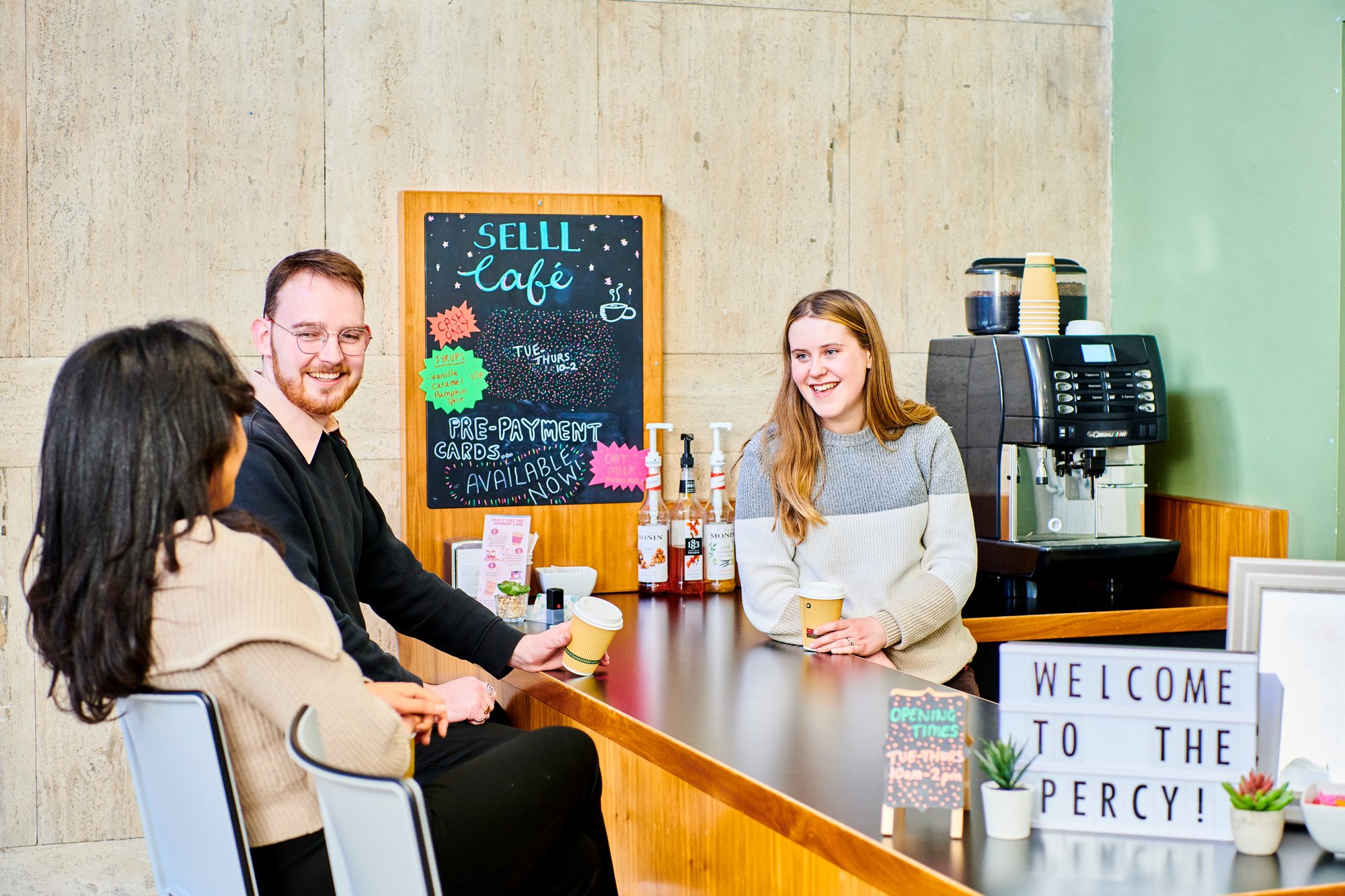Budgeting for students in the UK | Student budget tips
10 October 2025 | By: Jenny Shippen | 3 min read
With the rising cost of living, budgeting skills at university have never been more important. But how can you get to grips with university expenses as a new student?
Read our blog to find out what you'll need to budget for, plus tips on how to budget successfully so you can have the university experience you're dreaming of.
Contents:
- What is a student budget?
- What do students need to budget for?
- How can location affect your budget?
- How to budget as a student
- Budgeting tips for international students
What is a student budget?
Going to university means taking responsibility for your own finances, possibly for the first time in your life. You no longer have anyone looking over your shoulder when you make a purchase, but that doesn’t mean you have a free pass to be reckless with money.
With the rising cost-of-living, students with limited funds can feel the pinch more than most. That's why a budget - or financial plan - can help ensure you have enough money to cover all your essential costs.
What do students need to budget for?
At university, you will have to factor in essential student expenses, which include but are not limited to:
- rent
- groceries
- mobile phone
- transport
- course materials (textbooks, specialist equipment)
You may also have to cover bills associated with your accommodation.
At Newcastle University, the cost of utilities - such as gas, electricity, and water - as well as WiFi and personal possessions insurance, is included in your rent. Check out our accommodation page for more information.
Non-essential student expenses include:
- TV licence (if bringing your own TV to university or watching on an electronic device)
- eating out with friends
- clothes
- haircuts and other personal expenses
- subscription services
- holidays
- gifts
You'll also want to make the most of your university experience by joining clubs and societies, but that can come with a price tag.
At Newcastle University, our Activities Access Fund helps eligible students cover joining fees - and with our Students' Union hosting over 60 sports clubs and 160+ societies, you won't want to miss out.

How can location affect your budget?
Accommodation will be a major part of your expenses, so much so that the high cost of living in a city can be off-putting to prospective students. While researching universities, it is wise to take into account the difference in expenses - the price of rent, entertainment, and even groceries and other essentials can vary drastically from city to city.
Rated a Top 5 city in the UK for affordability (QS Best Student Cities 2026), Newcastle University students can benefit from a much lower cost of living compared to locations like London.
How to budget as a student
Budget plan
Writing a budget plan is the easiest and most effective way of managing your incomings and outgoings as a student.
Start by writing down all your sources of monthly income. If you are a UK student, you may be eligible for a maintenance loan to cover living expenses. Other sources can include money from your parents or guardians and any part-time jobs you have at university. Some scholarships also have an element covering living costs - if you receive one, it's worth checking the details of your scholarship.
Next, write down your essential expenses - prioritising your rent and food - and subtract them from your monthly income total. As long as your expenses don’t exceed your income, you are managing well and can use any leftover money to pay for non-essential expenses.
Budgeting apps
You may prefer to use one of the many student apps available to help you plan your budget. Some popular student budgeting apps include:
- Emma - manage your bank accounts and spending all in one place
- YNAB (You Need a Budget) - designed for young people, this app lets you assign your finances to your monthly needs and set priorities
- Monzo – a banking app that helps you set spending targets, and rounds up purchases so you can save the difference without even trying
As always, be aware of any hidden charges when signing up for apps.

Budgeting tips for international students
When you apply for your Student visa to study in the UK you will have to provide evidence you can support yourself financially. Budgeting when you're studying abroad will help you spend your money wisely.
One thing you will have to keep in mind while budgeting is the exchange rate in the UK today - exchanging currency at the right time and when the exchange rate is low could help your finances stretch further.
It may be difficult - but not impossible - to find home comforts while studying in the UK. You should be able to find similar products or brands to those at home in UK supermarkets (or specialised food shops, such as those in Newcastle's Chinatown). If you can't, ask your fellow students or consult budgeting apps for the closest (and cheapest) equivalent.
It's also worth checking further afield to find different or cheaper alternatives. Newcastle University's campus has some convenient shops close by, but walk a little further and you'll find the Grainger Market. This indoor market is full of stalls selling groceries, fresh fruit and vegetables, clothing, and street food, often at a fraction of the price of a supermarket!
You should also factor in more money to meet travel costs, especially if you want to explore the UK while you're studying here, and for trips home to see your family during the holidays. Don't forget the cost of travel insurance too!
Find out more:
- Need more financial support? Check out our Student Financial Support page.
- Explore how we're helping our students with the cost of living
- Could a scholarship help fund your degree? Find out.

We've been voted top in the UK for student life in the WhatUni Student Choice Awards 2025 - trusted recognition from real students.
